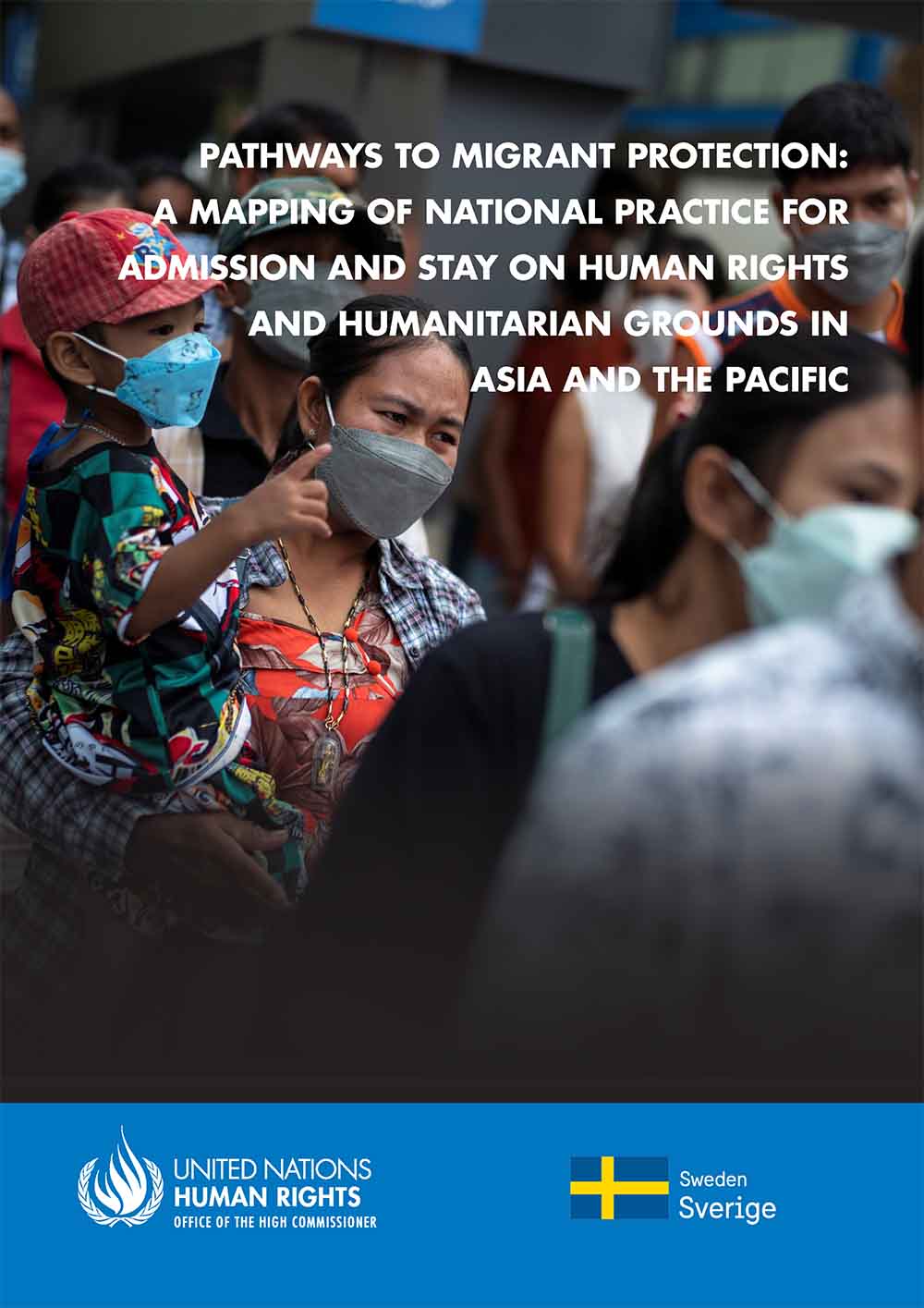
BANGKOK (16 May 2022) – States in the Asia Pacific region must do more to expand safe and regular migration pathways by providing mechanisms for migrants to enter and stay in their countries that promote and protect human rights, the UN Human Rights Office for South-East Asia said a new *report mapping national policy and practice in 17 countries.
 The report will be presented at the first ever International Migration Review Forum which will take place between 17-20 May at the United Nations headquarters in New York in order to enable a review of progress in implementation of the Global Compact for Safe, Orderly and Regular Migration, an intergovernmental agreement adopted in 2018 to cover all dimensions of international migration in a holistic and comprehensive manner.
The report will be presented at the first ever International Migration Review Forum which will take place between 17-20 May at the United Nations headquarters in New York in order to enable a review of progress in implementation of the Global Compact for Safe, Orderly and Regular Migration, an intergovernmental agreement adopted in 2018 to cover all dimensions of international migration in a holistic and comprehensive manner.
Roughly one in three of the world’s 282 million migrants originally came from the Asia Pacific region, and one in seven currently live here. Migration is driven by numerous factors, including as a response to entrenched patterns of discrimination, conflict and violence, as well as poverty, socio-economic inequality, family separation, and environmental factors such as natural disasters and climate change.
The new study maps the various options for migrants to enter and stay through legal, policy and administrative mechanisms. Noting in particular the ways in which countries were able to adapt their regulations during the COVID-19 pandemic, the report urges States to seize the opportunity to embed the practices and lessons learned in this period
It concludes with a set of seven recommendations to States and stakeholders on how to design, implement and monitor entry and stay pathways for migrants, with a focus on those who are in situations of vulnerability.
“To make a meaningful difference to the human rights protection landscape, pathways for entry and stay need to be sufficient, accessible, and tailored to meet the needs of the region’s migrants,” the report says.
“The many forces that drive migration, the high costs of regular migration, and restrictive and complex migration policies combine to create conditions of uncertainty for States and human rights risks for migrants. This mix makes the migration cycle more dangerous for migrants because they may be forced to rely on unscrupulous facilitators, or face discrimination, violence or abuse at borders; and the circumstances of individuals who are already in a vulnerable situation become more precarious.”
ENDS
For more information and media requests, please contact: in Bangkok, Todd Pitman (+66 63 216 9080 / todd.pitman@un.org) or Wannaporn Samutassadong (+66 65 986 0810 / wannaporn.samutassadong@un.org).
Tag and share:
Twitter @OHCHRAsia
Facebook OHCHRAsia
Instagram @ohchr_asia